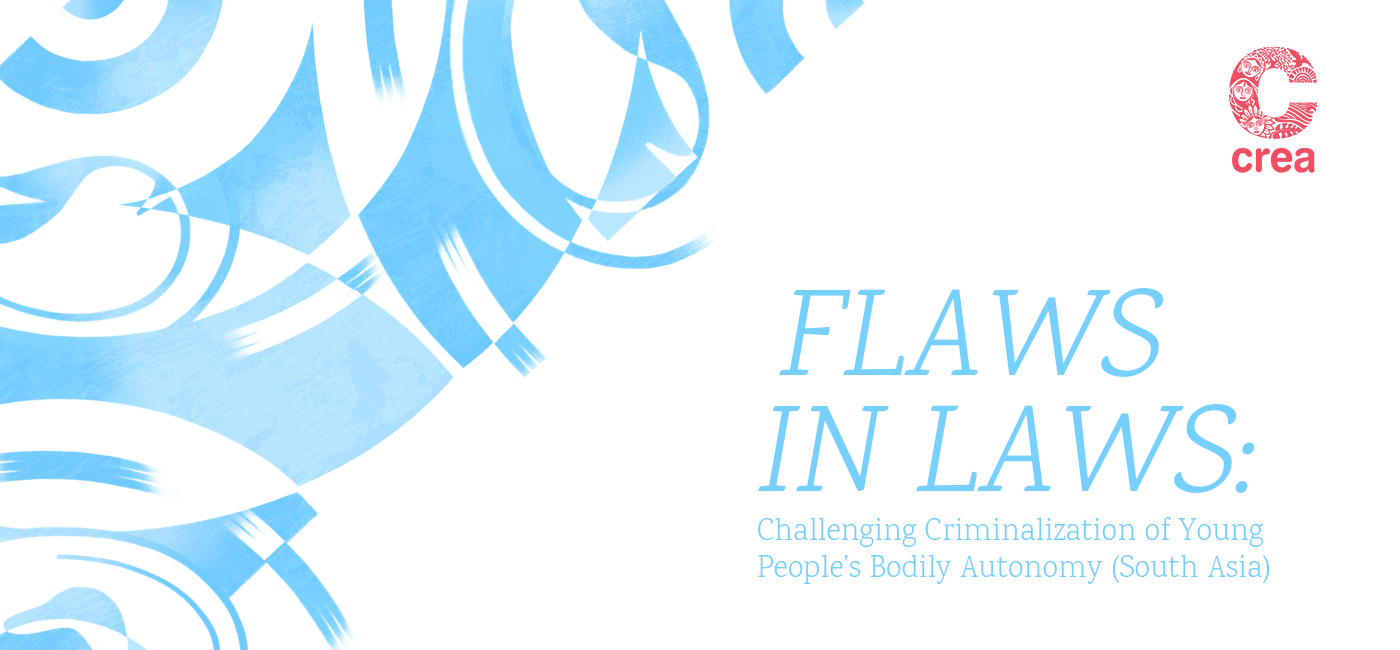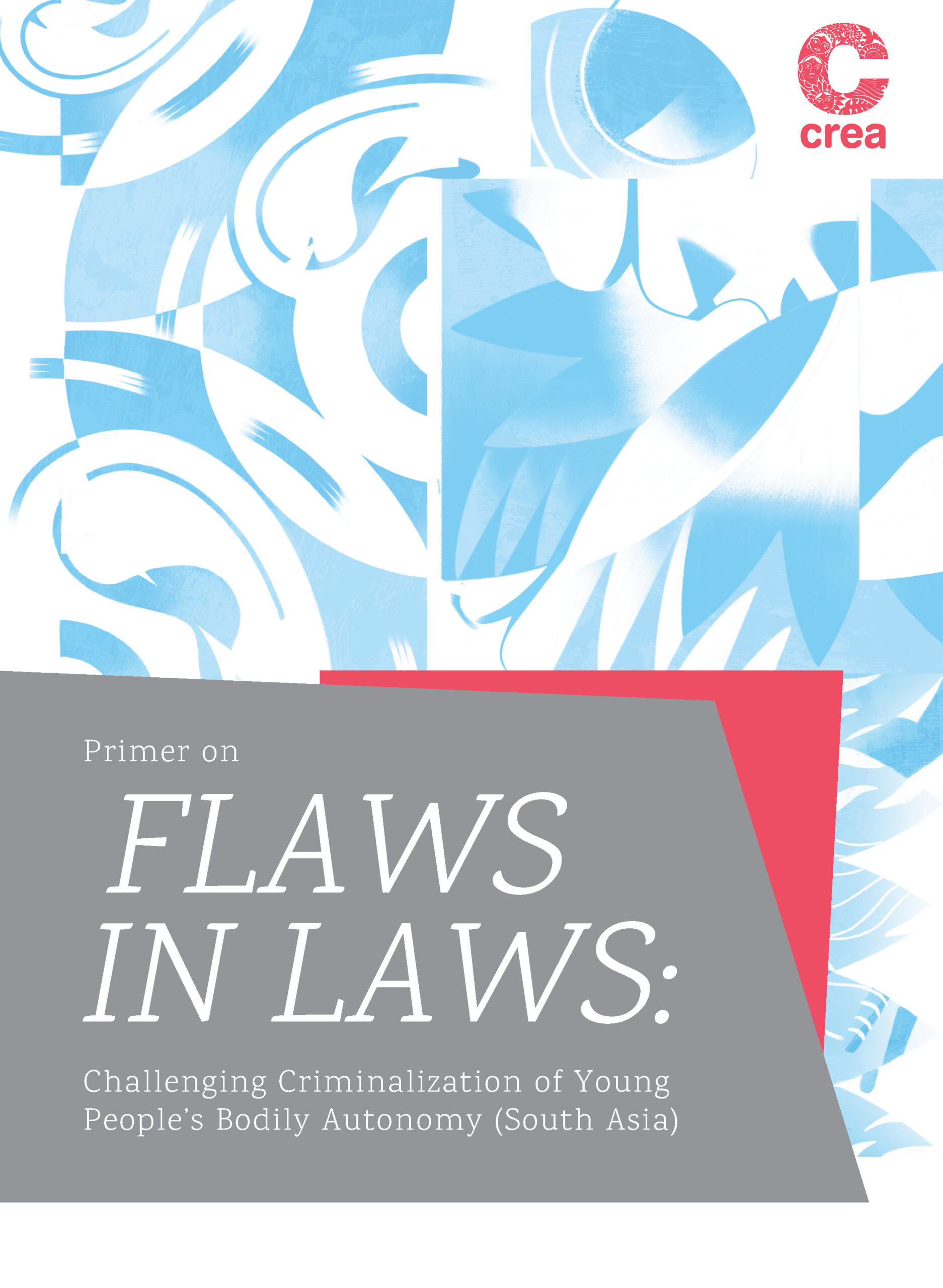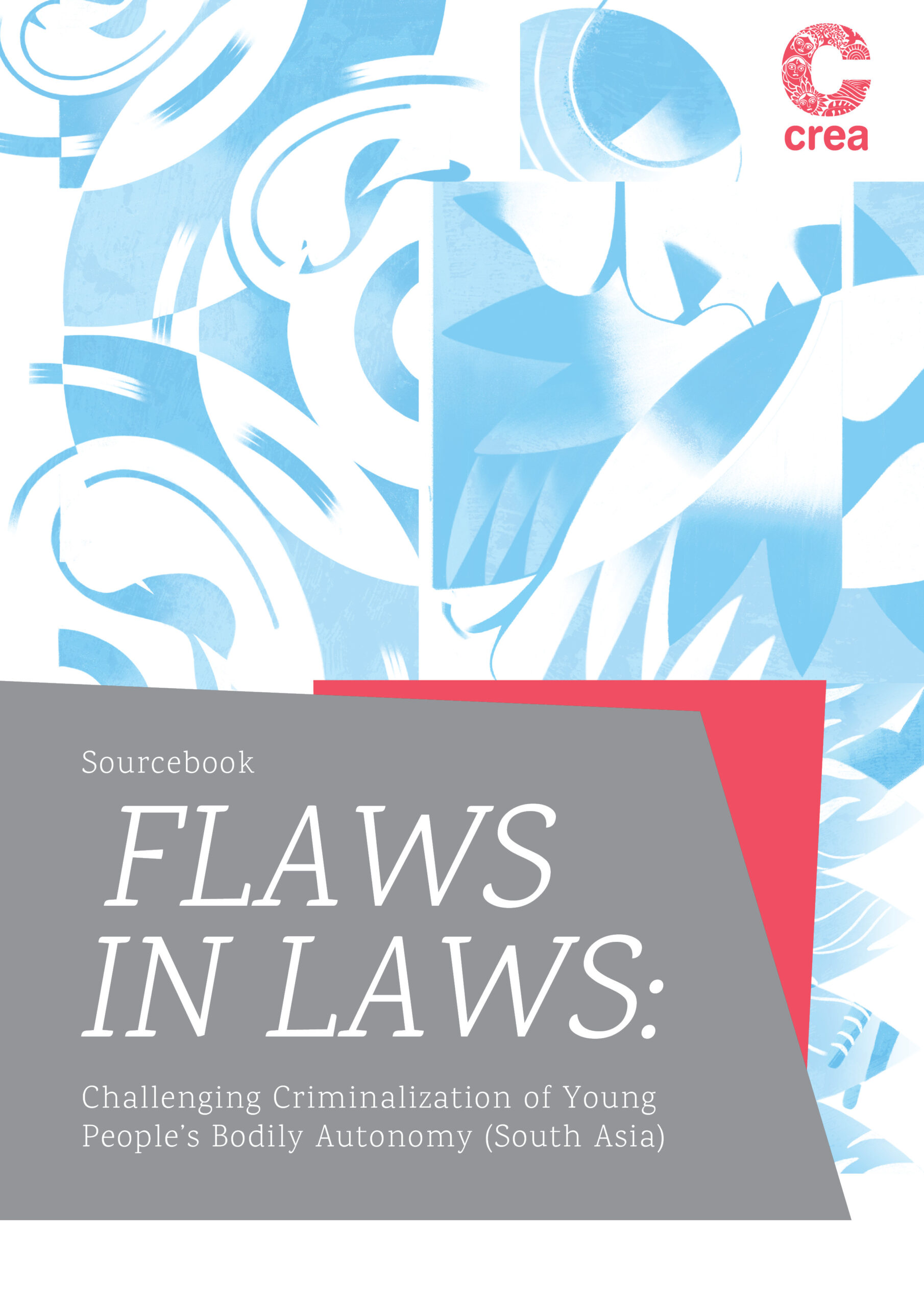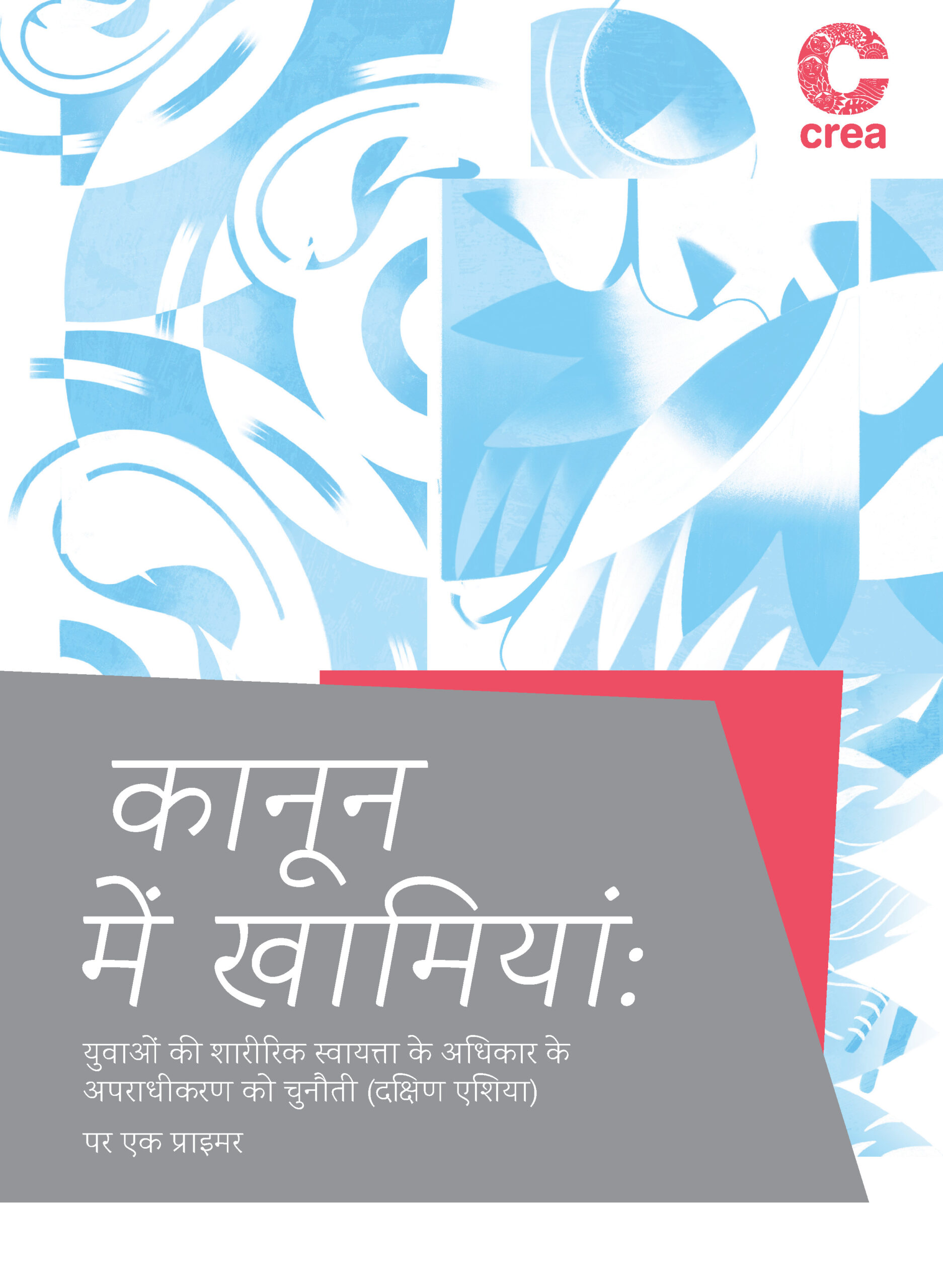
Flaws in Laws: Challenging Criminalization of Young People’s Bodily Autonomy
Primer & Sourcebook
In South Asia, young people still face antiquated and new laws working within a ‘protectionist’ framework, that represents them as incapable of making autonomous decisions about their bodies and rights. They are often labeled as vulnerable, in need of control, protection, or surveillance, which has led to the creation of punitive laws, policies, and practices.
With an increasing demand for the protection of young people from gender-based violence, across South Asia, we see the enactment of new laws and policies (or changes to existing ones) that may prevent young people from engaging in sexual activity and exploring their gender identity by imposing penalties for doing so.
These punitive laws, policies, and practices are often influenced by patriarchal and heteronormative social norms, reinforcing the misconception that young people lack the agency to make decisions about their gender and sexual rights. In the long run, such approaches do not enhance the rights of young people.
Why the Primer?
In 2019, CREA in partnership with Aahung (Pakistan), ARROW (Malaysia), Bandhu (Bangladesh), Hidden Pockets Collective (India), Youth Advocacy Network (Sri Lanka), The YP Foundation (India), and YUWA (Nepal) delved deeper into the impact of criminalizing young people’s sexuality on their access to human rights through the ‘#FlawsInLaws: Rethink my freedoms, Reimagine my rights, Realize my future’ campaign.
This campaign, focused on South Asia, highlighted the link between protectionist and punitive policies and practices, and their negative impact on young people’s sexuality and rights. The collaborative group explored the programmatic implications of this shift in understanding for their ongoing work. More information about the campaign can be found here.
The ‘Challenging Criminalization of Young People’s Bodily Autonomy’ Primer and Sourcebook emerged from the insights gained during the campaign, along with discussions and consultations involving CREA and its partners.
The Primer lays down foundational concepts and assertions crucial in unpacking criminalization and the impact of criminalization of bodily autonomy on young people in South Asia through a feminist lens.
For an in-depth comprehensive guide to this theme with country-specific examples, we recommend the Sourcebook on Flaws in Laws: Challenging Criminalization of Young People’s Bodily Autonomy.
These resources are intended to stimulate critical thinking about protectionist approaches to young people’s bodily autonomy. Our goal is to collectively progress toward affirming, non-punitive approaches that respect and safeguard young people’s health and rights, thereby enhancing their well-being and empowering them to rethink their lives.
Primer on Flaws in Laws: Challenging Criminalization of Young People's Bodily Autonomy

Flaws in Laws: Challenging Criminalization of Young People's Bodily Autonomy Sourcebook

Primer on Flaws in Laws: Challenging Criminalization of Young People's Bodily Autonomy (Hindi)
